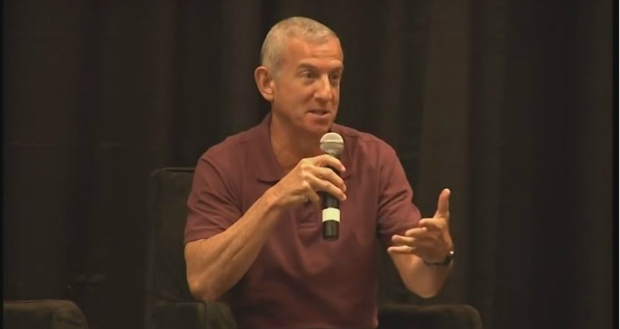

These are my top tips to increase your odds on achieving a winning print bid.
1. Make yourself known
The first place to start is to develop a good relationship with your print account manager. You want to make your business capabilities known and develop a positive working relationship.
It’s a strategy that could win you that lucrative job. On a recent, significant pitch potentially involving as many as five different suppliers, we were approached by a new partner who wasn’t even on the list for consideration. He asked for a meeting to take us through their print and ancillary capabilities, as well as his past experience. The company presented so professionally and we learnt they had the capabilities to do the entire job themselves, as well as the business acumen to do the best for our client. The client got a de-risked job and our partner won the whole bid.
Most printers don’t make this time. To get started, simply set up face-to-face meetings at least once per quarter and ask for a review of your performance to seek feedback on areas to improve. Also ask for this at the close of each job.
2. Innovation
Businesses that innovate and continually strive for improvements or offer something more than their competitors are more likely to win the high-profile jobs. For example, one of our print suppliers proactively audited a client’s stock usage for a regular run they’d be receiving and realised that the client may be over-specifying some areas of the job. This insight alone saved the client double-digits per run. Now we look to that same supplier for their recommendations on cost efficiencies for other clients. By simply reviewing the client’s brief, no matter how long you have been doing a job for and offering your expertise on more efficient ways to produce it could lead to new opportunities.
3. Get the job done
Being reliable is essential to your long-term business reputation. Don’t focus on revenue alone. Make sure you have the production capabilities, time and resources needed to get the job done – before accepting. If in doubt, don’t do it. You may jeopardise your long-term relationships, and miss out on the next, much more lucrative opportunity. Always remind yourself that: ‘You’re only as good, as your last job’.
Recently we had a partner who had consistently missed three or four jobs and we heard on the grapevine that they may be in difficulty. However, when we approached the business, we discovered it was as simple as one machine consistently breaking down. If only we’d known! There is often some flexibility in these situations if you communicate.
4. Ask for help
It is OK to ask for help when things don’t go to plan. If you are challenged, the best course of action is to manage expectations by communicating as early as possible. At OfficeMax, your account or partner manager will work with you to find a solution. We will also inform the client so they can adjust their own timelines if necessary. Asking for help early in this process will not only give you more time to find a solution, but will build better relationships with your account manager.
For a recent $100,000-plus, highly specialised job, we were at a deadlock with the partner over basic terms, which could’ve completed stopped the job progressing. That’s no good for anyone. Fortunately for us, the company called to put forward their core issue, which, when we found out about it, was negotiated in less than five minutes. By knowing the problem, we were easily able to work together and find a fix that meant we got the job we wanted, while our print partner got a pretty large piece of work! If this printer wasn’t proactive and didn’t ask for help, we probably would have never seen the job produced.
5. Price
While the above scenario shows there are other factors at play in winning print jobs, price is still a key determinant. To increase your odds of winning, analyse your worth. For example, there isn’t any point in pitching for the big jobs if you can’t perform on price in that area, and vice versa for the smaller jobs, too.
OfficeMax can work with you to understand where your business sits within the market. While we obviously can’t show every partner every detail, we can provide analysis that enables partners to get an idea for where the market sits for certain types of work. We can also help them with their quote-win rates and identify any less productive areas in terms of their ability to compete with the market. That can help the partner understand their business strengths to refocus to jobs where they’re most competitive. In the long term, the partner wins by saving both time and money, which ultimately drives profitability, as resources aren’t wasted in quoting for jobs and “hitting and hoping”.
Paul Munkley is marketing director at OfficeMax Australia, a supplier of complete workplace solutions that recently expanded their services into print management working with more than 150 local and international printers.
Comment below to have your say on this story.
If you have a news story or tip-off, get in touch at editorial@sprinter.com.au.
Sign up to the Sprinter newsletter



